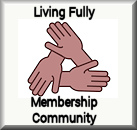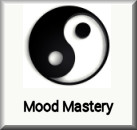As we come to July 1st in Canada and July 4th in the US we are reminded of the importance of traditions. In many families today, traditions are a things of the past. You may have fond memories of your childhood history, “remember when we…” but have had difficulty in doing that in your own generation with your own family. Of course, remarriage can be a block to this as many other things in our culture at this time can be. However, research would say that building experiences and fond memories in your relationship, both as a couple and as a family is an important part of living in a healthy way. It is never too late to start a tradition and the coming holiday weekend might provide a way for you to begin soon.Go forth and be wonderful!
Healthier Marriages – Lynda Chalmers
Relationship Power in Healthy Marriages
Balancing the power and voice in relationships is not necessarily easy. There are personality differences in using our voice. Also feeling powerless in one area of life can make one want to compensate for this sense of powerlessness in their intimate relationship. An unbalanced relationship eventually leads to unhappiness in the relationship. It is one of the complaints that I hear often when at least one partner has their foot out the door of the relationship. One of the ways to change the imbalance once you have recognized it, is to notice how you look at your partner. Is there an element of power struggle between you that has you speaking to each other in a win/lose way? Changing your vision of your partner to someone who you respect and has an equal and different offering in the relationship is your first step. Once your vision has changed, then look at how you speak to your partner and how you listen to your partner. Is that language and hearing one of an equal partner? All of us have experienced the pain of being in a relationship with a loved one where you cannot be heard. It automatically creates distance even when you would not want that to happen. Stay in the present moment and in this relationship when relating to your partner. Make sure your needs are each being heard and attended to. Your best solutions are those that take into account the relationship needs as well as each partner’s need. A great partner really wants to have his/her partner to experience a healthy sense of self in the relationship as well as developing their own sense of self in the relationship. Go forth and be wonderful in your relationship today!
Remarriage Challenges
I was a part of a huge study as a researcher at the University of British Columbia on Blended FamiliesStep. Remarriages have the challenges of a first marriage as well as added complications. For instance, another set of adults who may be quite conflicted as well as the scheduling and relationship issues of children going back and forth. During certain periods of time in the life of the kids and the second relationship, there is a great deal of stress and it takes a very deliberate effort on the part of a couples to make it all work. You don’t have to be a statistic but don’t take the statistic lightly that reports that second marriages have a poorer chance of staying together. Making a healthy relationship your top priority and focussing a part of your time and effort on your relationship is what it takes. Having some respite by having the kids looked after by others for some weekend getaway time is really necessary for rejuvenating the relationship and cementing your attachment again. Whatever it takes in trading kids or asking relatives is worth it. You can do this. Go forth and be wonderful!
Marriage Communication – Are You on My Team?
There has been lots of emphasis in my marriage counselling recently on the idea of couples wanting to be on the same team. Establishing the idea of team early in the relationship is very helpful but it can still be hard to sustain the idea of team in relationship over time. Somehow in the stresses and disappointments in a day, it is much easier to separate emotionally and consider that the other has poor intentions towards the relationship. This is a choice you can make in your relationship. By making the choice towards holding the belief that your partner has good intentions, you are part way to the place of understanding and team. When something goes wrong on a hockey team, the team members do not automatically go to bad intentions towards their team mate. The team goes back to the drawing board to work out how to do better as a team the next time. The team mate who made the mistake, practices more and endeavours to change themselves. When you choose to have a mindset that believes in your partners good intentions, you can have a conversation that allows you to look out for the holes in your team and work out how to be a better team the next time. You can brainstorm how to make changes individually and as a team to strengthen the attachment together, and know that it is “you together” against the world. Peace and strength to your house!
Fathers Day
Today is the day that we think about and celebrate Fathers. The role of fathering has changed in the past 30 years. Part of this is the fact that woman now work outside their home and the other is that marriages break down more often and fathers are faced with care taking their children in ways they have not experienced before in their 50/50 custody and care taking agreements. I am often coaching fathers in these situations to help them see the part of the picture that their partner used to assume. These can be challenging times and need to be a reason to make your marriage work as a dad. It is important in your relationship to negotiate your mom and dad roles together as the kids needs and your needs change. If you are the type of person that has certain expectations regarding parenting, you will need to work extra hard at letting go when your partner does their role from their gifts and personality and not yours. Criticism and contempt shoot holes in relationships and lead to the dissolution of relationships. Working at acceptance of the other as well as accepting influence from the other is an ongoing theme in successful relationships and fathering.
Happily Ever After?
The statistics for marriage longevity can erode hopefulness for happiness in marriage, especially in the hard times. I will often have a part of the couple turn and ask during a session, “Does anybody really make marriage work and are they happy?” We certainly have research from John Gottman that says, yes, and if you are fortunate, you will know those in your circle of friends that are happily married. But here is more! By using brain scan imaging, researchers at Stonybrook University showed that love really can last. in studying the brain scans, ‘there were very many clear similarities between those who were in love long term and those that had just fallen madly in love,’ Aron said. “[The brain scan showing the reward and motivation region of the brain] showed greater activation for those in the long term couple group who scored especially high on romantic love scales and on closeness scales based on questionnaires”, adds Dr. Aceredo. It needs to be noticed that the connection, attachment, sexual activity as well as romantic love were all implicated in the study. So… and they lived happily ever after is still alive and well.
Blaming and Self Responsibility in Healthy Relationships
In seeing my couple clients over the last year, I was reminded of a series of studies by David Burns. He was hoping to find, among other things, attitudes that lead to loving, rewarding relationships and those that lead to conflict and misery. What they found was that other-blame was by far the more important mind-set. This mind-set of blaming their partners (or others) for the problems in their relationship not only showed they were intensely dissatisfied with their relationship but this mind-set would accurately predict they would be more miserable and unhappy in their relationships within 3 months time. Conversely, those who were committed to making their partners happy and whose attitude showed a willingness to assume full personal responsibility for solving problems in their relationship were the most satisfied in their relationships and had an increase in their satisfaction over time.
One way that other blame shows up in therapy and gets couples into trouble is that when they blame, they call it truth telling. ‘I am only being honest” is worn as a badge to justify their assault on others or to justify their disrespect of their partner. In relationship, we need to consider the context and the other when we share what is inside of us. In the interests of being known, we can sometimes let the other in on our thoughts and feelings without sensitivity. This leads to brutality in the relationship. It is both important to know our feelings and to know how and when to express them. Blaming leads to cognitive distortions about your partner, arguing defensively, making win- lose arguments which in turn leads to endless fighting and bitterness.
The opposite challenge that some couples have is that one person totally blames himself or herself. Their thoughts are consumed with their failure and inadequacy and they often obsess on what the other has said about them. They feel paralyzed and defeated. They are flooded with cognitive distortions that make them want to give up. This often leads to depression, feeling isolated and lonely, which in turn leads to many more relationship challenges.
So what does work? I really love to see the changes with couples in my office when they understand the difference between blaming others, self blame and personal responsibility. When couples are able to have personal responsibility, they are able to look at their couple challenges in a way that they are looking for their contribution for the challenge in order to learn about themselves and how to resolve the conflict in a better way. They listen differently. They are listening for the other’s truth, the way the conflict looks to them. They stay in the conversation, being actively engaged, trying to gain a better understanding. They feel open, receptive, caring and have a greater intimacy with themselves and the other, leading to greater trust and satisfaction. This may sound a long way from where you are but when you have the skills, practice, a positive mindset and some positive goals towards this end for yourself, you will be able to accomplish a healthier relationship.
Life Changes in Couple Relationships
I have been doing some changing of my business and while I have been doing that – I have been thinking about the challenges of change. If you are like me, change is a lovely challenge. I embrace it with excitement, interest and intrigue. The difficulty for me is that my mind goes so quickly to that terrific place in my where there are so many great possibilities and ideas that I can get stalled there. Deciding on a definitive change and then following through would be more of my challenge. I usually have to make a mind map and then I have found that I really need to limit myself to 3 goals for the week in order to get out of the dreaming stage and into the doing stage.
I know from our relationship together in the counselling room that change is not at all like that for all of you. For some of you, change is threatening and something to be resisted. All kinds of fears come up. What if I can’t do what I have proposed for myself or my partner? I have tried to change before and did not follow through, disappointing myself and others. Or perhaps the comfort of your current dysfunction, painful as it is, is better then the unknown of change. Or you are stuck in not wanting to change unless your partner changes. And so the time rolls by, the suffering continues and the isolation in the relationship continues with the ideal of a healthy marriage becoming a distant dream.
If this is where you are at, I invite you to consider that change is actually for your benefit personally. Your relationship is the gift that you get to bump up against yourself and your need to change, where your interactions together surfaces some grit in your oyster. Whether your partner changes or does not, is irrelevant to our own need for change. Consider embracing the changes you are being invited to, turn that grit into a very fine pearl. As usual, go forth and be wonderful and love like you actually mean it!
Lynda Chalmers
Empty Nest Looming
It is typical for me to see at least one part of a couple (most often the woman) in counselling when the children are grown and about to leave home. If she is coming to see me, she most often feels a sense of restlessness and often the long term committed relationship has lost its element of friendship and connection. The day to day of the kids, their activities and their care has taken a toll on the relationship. There may be an affair that has been discovered. There is often a sense of not fulfilling their life purpose. If this describes you and your relationship, it is definitely time to make some changes, BEFORE the affair. If possible, go away with your partner for a weekend and have the purpose of taking stock of your coupleship. Envision a future together that focusses on life-giving goals and events. Perhaps you will decide to go somewhere and contribute to building houses for others who are less fortunate, as my friend does each year. Perhaps you will experience another country in an exchange program, perhaps going on a sabbatical from work, learning another language and culture. Take responsibility for your own malaise without blaming the relationship. Make your own changes as well as working at adding life to the relationship itself to resolve this transition of life.
Easter time
 I was reminded of the Christian religious model of extravagant love that Easter represents and realizing how short we fall of that model in many cases. Although we are connecting beings, family gatherings at Easter can be difficult for many, as families come in many shapes and sizes, and can be difficult to navigate in love. Kids are often excited and consequently sleep deprived and couples are sometimes not on the same side about relatives. Yet we keep hoping and even expecting that our time together will be different this year. In the book “The Intentional Family”, William Doherty talks about minimizing the risks of breakdowns in relationships over the holidays by planning for what people can handle ahead of time. Give people time to plan for the event. If there is someone who is emotionally disconnected at this time, invite them to the family event anyway. Let everyone know who is being invited and they will make their own choices accordingly. If there are challenges with alcohol in the family, perhaps you can have an Easter brunch. Perhaps the family will do better with an outdoor event rather then an indoor event. Perhaps a good meal in a restaurant is just about all you can handle together. Choose times that have the potential for creating a good memory together.
I was reminded of the Christian religious model of extravagant love that Easter represents and realizing how short we fall of that model in many cases. Although we are connecting beings, family gatherings at Easter can be difficult for many, as families come in many shapes and sizes, and can be difficult to navigate in love. Kids are often excited and consequently sleep deprived and couples are sometimes not on the same side about relatives. Yet we keep hoping and even expecting that our time together will be different this year. In the book “The Intentional Family”, William Doherty talks about minimizing the risks of breakdowns in relationships over the holidays by planning for what people can handle ahead of time. Give people time to plan for the event. If there is someone who is emotionally disconnected at this time, invite them to the family event anyway. Let everyone know who is being invited and they will make their own choices accordingly. If there are challenges with alcohol in the family, perhaps you can have an Easter brunch. Perhaps the family will do better with an outdoor event rather then an indoor event. Perhaps a good meal in a restaurant is just about all you can handle together. Choose times that have the potential for creating a good memory together.
Talk about the challenges in the family together as a couple in a non blaming kind of way. Family may be an enduring vulnerability in your relationship together. It is important to be gentle when talking about the failure of family members and how you might need to accommodate for family members in order to have a successful celebration together. Remember that your family is biologically attached to you and that attachment in important, even if your family members have difficulty in getting along with each other. Attacking family members in your conversations is difficult for your partner to hear even though there is some recognition of the “truth” of what you are saying. Don’t allow your family to get in the way of your team together by the way you try to resolve these holiday issues.





